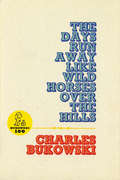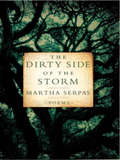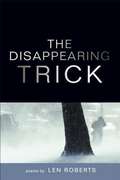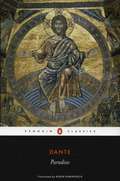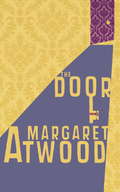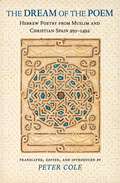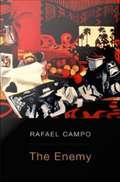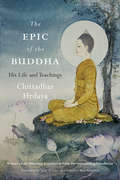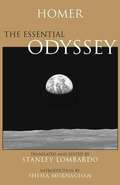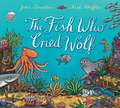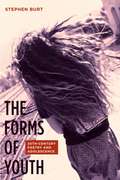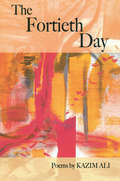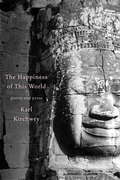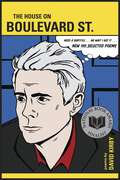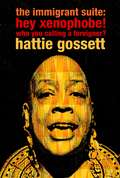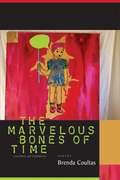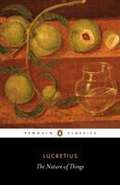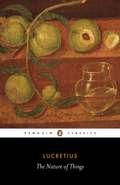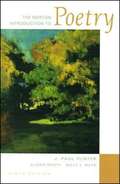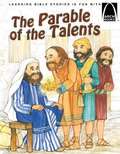- Table View
- List View
The Complete Poetry and Essential Prose of John Milton
by John Milton William Kerrigan John Rumrich Stephen M. FallonJohn Milton is, next to William Shakespeare, the most influential English poet, a writer whose work spans an incredible breadth of forms and subject matter. The Complete Poetry and Essential Prose of John Milton celebrates this author's genius in a thoughtfully assembled book that provides new modern-spelling versions of Milton's texts, expert commentary, and a wealth of other features that will please even the most dedicated students of Milton's canon. Edited by a trio of esteemed scholars, this volume is the definitive Milton for our time.In these pages you will find all of Milton's verse, from masterpieces such as Paradise Lost-widely viewed as the finest epic poem in the English language-to shorter works such as the Nativity Ode, Lycidas,, A Masque and Samson Agonistes. Milton's non-English language sonnets, verses, and elegies are accompanied by fresh translations by Gordon Braden. Among the newly edited and authoritatively annotated prose selections are letters, pamphlets, political tracts, essays such as Of Education and Areopagitica, and a generous portion of his heretical Christian Doctrine. These works reveal Milton's passionate advocacy of controversial positions during the English Civil War and the Commonwealth and Restoration periods. With his deep learning and the sensual immediacy of his language, Milton creates for us a unique bridge to the cultures of classical antiquity and medieval and Renaissance Christianity. With this in mind, the editors give careful attention to preserving the vibrant energy of Milton's verse and prose, while making the relatively unfamiliar aspects of his writing accessible to modern readers. Notes identify the old meanings and roots of English words, illuminate historical contexts-including classical and biblical allusions-and offer concise accounts of the author's philosophical and political assumptions. This edition is a consummate work of modern literary scholarship.ays, but it is highly unlikely that any of the tributes he receives will do as much for him as the appearance of the Modern Library edition of his collected poetry and selected prose. The edition is a model of its kind, well designed and attractively produced. There are scholarly but unintimidating footnotes and helpful introductions to the major works. Spelling and punctuation have been modernized -- a difficult decision but the right one....A great deal has been packed in, but Milton has still been left room to breathe. The whole enterprise is meant to be reader-friendly, and it succeeds." -- The Wall Street Journal"This magnificent edition gives us everything we need to read Milton intelligently and with fresh perception. You could take it to a desert island, or just stay home and further your education in a great writer."-William H. Pritchard, Amherst College"For generations of readers Milton has been the measure of both eloquence and nobility of mind. For the next generation this new Modern Library volume will be the standard: it is meticulously edited, full of tactful annotations that set the stage for his work and his times, and it brings Milton, as a poet and a thinker, vividly alive before us."-Robert Hass"Years ago I began a series of poems about Milton and his daughters. Ever since, I have been combing through Milton's poems and prose for those moments when the poet would turn and speak to the poet in me. It is in the new Kerrigan-Rumrich-Fallon edition that I now find prompt rejoinders to questions, ready clarifications of problems, and a more intimate dimension of that formidable adjective Miltonic." -Richard Howard "A superb edition of the great poet, with modernized spelling, lucid introductions to each work, illuminating footnotes, and fresh prose translations of poems in Latin, Greek, and Italian. This will surely be the edition of choice for teachers, students, and general readers too."-Leo Damrosch, Harvard University"The introductions alone constitute a fine new book on Milton, beautifully written, challenging and balanced, with equal care and insight given to textual, biographical, historic...
The Complete Poetry: A Bilingual Edition
by César Vallejo Clayton EshlemanThis first translation of the complete poetry of Peruvian César Vallejo (1892-1938) makes available to English speakers one of the greatest achievements of twentieth-century world poetry. Handsomely presented in facing-page Spanish and English, this volume, translated by National Book Award winner Clayton Eshleman, includes the groundbreaking collections The Black Heralds (1918), Trilce (1922), Human Poems (1939), and Spain, Take This Cup from Me (1939). Vallejo's poetry takes the Spanish language to an unprecedented level of emotional rawness and stretches its grammatical possibilities. Striking against theology with the very rhetoric of the Christian faith, Vallejo's is a tragic vision--perhaps the only one in the canon of Spanish-language literature--in which salvation and sin are one and the same. This edition includes notes on the translation and a fascinating translation memoir that traces Eshleman's long relationship with Vallejo's poetry. An introduction and chronology provide further insights into Vallejo's life and work.
The Days Run Away like Wild Horses
by Charles BukowskiThe Days Run Away like Wild Horses is a book of poems written by Charles Bukowski for Jane, his first love. These poems explore a more emotional side to the author.
The Dirty Side of the Storm: Poems
by Martha Serpas"At once a love song and a dirge to a landscape being swallowed by the waters that define it."--St. Petersburg Times An evocative meditation on destruction and creation, the sacred and ephemeral, along Louisiana's coast. In poems that bear witness to the eroding bayou country and its Cajun culture, Martha Serpas venerates a vanishing landscape defined by water--sensuous, fecund, and destructive. As marsh turns into gulf, identity and consciousness are transformed as well. Serpas's verses invest paradox with her own defiantly spiritual meaning.
The Disappearing Trick
by Len RobertsIn The Disappearing Trick, Len Roberts wrestles with the loss of loved ones--whether that loss be through death, a son moving away to college, or simply how people fade from our lives and memories. Hybrids of the narrative and lyric form, these poems are models of indirect statement that have, as Sharon Olds has said, "emotional courage, powerful music, and a deep balance." Like the light shining on a face, or a girl's thigh back in a sixth-grade class, the poems often come as Proustian flashes--lasting just a second, but seeming eternal--amid an increasing darkness.
The Divine Comedy: Paradiso (Volume #3)
by Dante Alighieri Robin KirkpatrickHaving plunged to the utmost depths of Hell and climbed Mount Purgatory in the first two parts of The Divine Comedy, Dante now ascends to Heaven, guided by his beloved Beatrice, to continue his search for God.
The Door
by Margaret AtwoodA stunning lyrical achievement and Atwood's first collection of new poems in over a decade.The Door is Margaret Atwood's first book of poetry since the award-winning Morning in the Burned House (1995). Its fifty lucid yet urgent poems range in tone from lyric to ironic to meditative to prophetic, and in subject from the personal to the political, viewed in its broadest sense. They investigate the mysterious writing of poetry itself, as well as the passage of time and our shared sense of mortality. The collection begins with poems that consider the past and ends with harbingers of things to come.Brave and compassionate, The Door interrogates the certainties that we build our lives on.From the Hardcover edition.
The Dream of the Poem: Hebrew Poetry from Muslim and Christian Spain, 950-1492 (The Lockert Library of Poetry in Translation #58)
by Peter ColeHebrew culture experienced a renewal in medieval Spain that produced what is arguably the most powerful body of Jewish poetry written since the Bible. Fusing elements of East and West, Arabic and Hebrew, and the particular and the universal, this verse embodies an extraordinary sensuality and intense faith that transcend the limits of language, place, and time. Peter Cole's translations reveal this remarkable poetic world to English readers in all of its richness, humor, grace, gravity, and wisdom. The Dream of the Poem traces the arc of the entire period, presenting some four hundred poems by fifty-four poets, and including a panoramic historical introduction, short biographies of each poet, and extensive notes. (The original Hebrew texts are available on the Princeton University Press Web site.) By far the most potent and comprehensive gathering of medieval Hebrew poems ever assembled in English, Cole's anthology builds on what poet and translator Richard Howard has described as "the finest labor of poetic translation that I have seen in many years" and "an entire revelation: a body of lyric and didactic verse so intense, so intelligent, and so vivid that it appears to identify a whole dimension of historical consciousness previously unavailable to us." The Dream of the Poem is, Howard says, "a crowning achievement."
The Enchanted Dust
by Pratibha Satpathy Raju SamalThe poems in this collection depict the spiritual experiences of the poet. They concern human existence, which according to Satpathy is like a grain of ordinary dust enchanted with magical powers.
The Enemy
by Rafael CampoIn his fifth collection of poetry, the physician and award-winning writer Rafael Campo considers what it means to be the enemy in America today. Using the empathetic medium of a poetry grounded in the sentient physical body we all share, he writes of a country endlessly at war-not only against the presumed enemy abroad but also with its own troubled conscience. Yet whether he is addressing the U. S. invasion of Iraq, the battle against the AIDS pandemic, or the culture wars surrounding the issues of feminism and gay marriage, Campo’s compelling poems affirm the notion that hope arises from even the most bitter of conflicts. That hope-manifest here in the Cuban exile’s dream of returning to his homeland, in a dying IV drug user’s wish for humane medical treatment, in a downcast housewife’s desire to express herself meaningfully through art-is that somehow we can be better than ourselves. Through a kaleidoscopic lens of poetic forms, Campo soulfully reveals this greatest of human aspirations as the one sustaining us all.
The Epic of the Buddha: His Life and Teachings (Harvard Oriental Ser. #67)
by Chittadhar HrdayaA translation of the modern Nepalese classic Winner of the Toshihide Numata Book Award in Buddhism and the Khyentse Foundation Prize for Outstanding Translation This award-winning book contains the English translation of Sugata Saurabha (“The Sweet Fragrance of the Buddha”), an epic poem on the life and teachings of the Buddha. Chittadhar Hṛdaya, a master poet from Nepal, wrote this tour de force while imprisoned for subversion in the 1940s and smuggled it out over time on scraps of paper. His consummate skill and poetic artistry are evident throughout as he tells the Buddha’s story in dramatic terms, drawing on images from the natural world to heighten the description of emotionally charged events. It is peopled with very human characters who experience a wide range of emotions, from erotic love to anger, jealousy, heroism, compassion, and goodwill. By showing how the central events of the Buddha’s life are experienced by Siddhartha, as well as by his family members and various disciples, the poem communicates a fuller sense of the humanity of everyone involved and the depth and power of the Buddha’s loving-kindness. For this new edition of the English translation, the translators improved the beauty and flow of most every line. The translation is also supplemented with a series of short essays by Todd Lewis, one of the translators, that articulates how Hṛdaya incorporated his own Newar cultural traditions in order to connect his readership with the immediacy and relevancy of the Buddha’s life and at the same time express his views on political issues, ethical principles, literary life, gender discrimination, economic policy, and social reform.
The Essential Odyssey (abridged)
by Homer Stanley Lombardo Sheila MurnaghanThis abridgement of the Odyssey offers nearly half of the text of Stanley Lombardo's 2000 translation of the complete epic and provides narrative bridges for omitted passages.
The Fish Who Cried Wolf
by Julia DonaldsonTiddler is the smallest fish in the ocean, but he tells the TALLEST tales: "Sorry I'm late, Miss. I set off really early But on my way to school I was captured by a squid. I wriggled and I struggled till a turtle came and rescued me." "Oh no he didn't." "Oh yes he did." But then one day on the way to school, Tiddler gets caught in a fisherman's net. How can the little fish with the big mouth talk his way out of this one?
The Forms of Youth: Twentieth-Century Poetry and Adolescence
by Stephen BurtEarly in the twentieth century, Americans and other English-speaking nations began to regard adolescence as a separate phase of life. Associated with uncertainty, inwardness, instability, and sexual energy, adolescence acquired its own tastes, habits, subcultures, slang, economic interests, and art forms. This new idea of adolescence became the driving force behind some of the modern era's most original poetry. Stephen Burt demonstrates how adolescence supplied the inspiration, and at times the formal principles, on which many twentieth-century poets founded their works. William Carlos Williams and his contemporaries fashioned their American verse in response to the idealization of new kinds of youth in the 1910s and 1920s. W. H. Auden's early work, Philip Larkin's verse, Thom Gunn's transatlantic poetry, and Basil Bunting's late-modernist masterpiece, Briggflatts, all track the development of adolescence in Britain as it moved from the private space of elite schools to the urban public space of sixties subcultures. The diversity of American poetry from the Second World War to the end of the sixties illuminates poets' reactions to the idea that teenagers, juvenile delinquents, hippies, and student radicals might, for better or worse, transform the nation. George Oppen, Gwendolyn Brooks, and Robert Lowell in particular built and rebuilt their sixties styles in reaction to changing concepts of youth. Contemporary poets continue to fashion new ideas of youth. Laura Kasischke and Jorie Graham focus on the discoveries of a specifically female adolescence. The Irish poet Paul Muldoon and the Australian poet John Tranter use teenage perspectives to represent a postmodernist uncertainty. Other poets have rejected traditional and modern ideas of adolescence, preferring instead to view this age as a reflection of the uncertainties and restricted tastes of the way we live now. The first comprehensive study of adolescence in twentieth-century poetry, The Forms of Youth recasts the history of how English-speaking cultures began to view this phase of life as a valuable state of consciousness, if not the very essence of a Western identity.
The Forms of Youth: Twentieth-Century Poetry and Adolescence
by Stephanie BurtEarly in the twentieth century, Americans and other English-speaking nations began to regard adolescence as a separate phase of life. Associated with uncertainty, inwardness, instability, and sexual energy, adolescence acquired its own tastes, habits, subcultures, slang, economic interests, and art forms. This new idea of adolescence became the driving force behind some of the modern era's most original poetry.Stephen Burt demonstrates how adolescence supplied the inspiration, and at times the formal principles, on which many twentieth-century poets founded their works. William Carlos Williams and his contemporaries fashioned their American verse in response to the idealization of new kinds of youth in the 1910s and 1920s. W. H. Auden's early work, Philip Larkin's verse, Thom Gunn's transatlantic poetry, and Basil Bunting's late-modernist masterpiece, Briggflatts, all track the development of adolescence in Britain as it moved from the private space of elite schools to the urban public space of sixties subcultures. The diversity of American poetry from the Second World War to the end of the sixties illuminates poets' reactions to the idea that teenagers, juvenile delinquents, hippies, and student radicals might, for better or worse, transform the nation. George Oppen, Gwendolyn Brooks, and Robert Lowell in particular built and rebuilt their sixties styles in reaction to changing concepts of youth. Contemporary poets continue to fashion new ideas of youth. Laura Kasischke and Jorie Graham focus on the discoveries of a specifically female adolescence. The Irish poet Paul Muldoon and the Australian poet John Tranter use teenage perspectives to represent a postmodernist uncertainty. Other poets have rejected traditional and modern ideas of adolescence, preferring instead to view this age as a reflection of the uncertainties and restricted tastes of the way we live now. The first comprehensive study of adolescence in twentieth-century poetry, The Forms of Youth recasts the history of how English-speaking cultures began to view this phase of life as a valuable state of consciousness, if not the very essence of a Western identity.
The Fortieth Day (American Poets Continuum)
by Kazim AliFrom the Bible to the Quaraan, the fortieth day symbolizes the last moment before deliverance, a moment in time when a supplicant or prophet or stormbeaten passenger knows there is no state &“after,&” but finally accepts the present state as a permanent one.In The Fortieth Day, Kazim Ali follows the fractured narratives and moving lyrics of his debut collection, The Far Mosque, with a deeply spiritual and meditative book exploring the rhetoric of prayer.Kazim Ali was born in the United Kingdom and raised in an Islamic household. He holds degrees from the University at Albany and New York University. He lives in Oberlin, Ohio.
The Happiness of this World
by Karl KirchweyIt is this "shockability" that informs Karl Kirchwey's new work. Through four collections, he has explored the resonances between past and present, seeking a sense of home in a world of losses. Now, as the horrors of the modern world crowd in on him, he meditates on the future his children will inherit. These are angry poems, tender poems, poems of hope, love, and despair. Reviewing Kirchwey's last book in The New Criterion, William Logan wrote: "An elegy for an uncle, a World War II pilot killed in the Pacific, reminds us that we live only by the sacrifice of the dead, and therefore in their shadows. Shadows fall frequently over these poems, from lives corrupted, crippled, or destroyed," and in the concluding section of this new work, a prose memoir with poems that will appear in full in Parnassus, the poet revisits that dead uncle and the unhappy generations preceding his own. Seeking out family origins and family secrets, this section climaxes in a holy Hindu pilgrimage in honor of the dead and returns the poet, who in his search has circled the globe, to the family of the living and the circumscribed happiness of this world.
The Happiness of this World
by Karl KirchweyIt is this "shockability" that informs Karl Kirchwey's new work. Through four collections, he has explored the resonances between past and present, seeking a sense of home in a world of losses. Now, as the horrors of the modern world crowd in on him, he meditates on the future his children will inherit. These are angry poems, tender poems, poems of hope, love, and despair. Reviewing Kirchwey's last book in The New Criterion, William Logan wrote: "An elegy for an uncle, a World War II pilot killed in the Pacific, reminds us that we live only by the sacrifice of the dead, and therefore in their shadows. Shadows fall frequently over these poems, from lives corrupted, crippled, or destroyed," and in the concluding section of this new work, a prose memoir with poems that will appear in full in Parnassus, the poet revisits that dead uncle and the unhappy generations preceding his own. Seeking out family origins and family secrets, this section climaxes in a holy Hindu pilgrimage in honor of the dead and returns the poet, who in his search has circled the globe, to the family of the living and the circumscribed happiness of this world.
The House on Boulevard St.: New and Selected Poems (Southern Messenger Poets)
by Professor David Kirby?
The Immigrant Suite: Hey Xenophobe, Who You Calling a Foreigner?
by Hattie GossettWriting from the upper west side of Manhattan, where Harlem intersects with waves of immigrants from the Dominican Republic, Cuba, Puerto Rico, Korea, Cambodia, Ivory Coast, India, Native America, and from all over the globe, Hattie Gossett vividly invokes her neighborhood experience. With wit and candor, she questions why so many people are forced from their home countries, only to be despised as interlopers in the United States; why older immigrants see younger ones as the enemy; who gets paid a living wage, who gentrifies their neighborhood, and who sends their money back home. From the grocery store to the cleaners to the tenement walk-up and everywhere in between, Gossett captures the voices overheard and imagined in this breathless immigrant suite.
The Marvelous Bones of Time: Excavations and Explanations
by Brenda CoultasIncorporating memoir, folktales, fact, and hearsay into two distinctly moving poems, this collection attests to history's manifestation in the present moment.
The Nature of Things
by Stallings LucretiusLucretius' poem On the Nature of Things combines a scientific and philosophical treatise with some of the greatest poetry ever written. With intense moral fervour he demonstrates to humanity that in death there is nothing to fear since the soul is mortal, and the world and everything in it is governed by the mechanical laws of nature and not by gods; and that by believing this men can live in peace of mind and happiness. He bases this on the atomic theory expounded by the Greek philosopher Epicurus, and continues with an examination of sensation, sex, cosmology, meteorology, and geology, all of these subjects made more attractive by the poetry with which he illustrates them.
The Nature of Things
by LucretiusLucretius' poem On the Nature of Things combines a scientific and philosophical treatise with some of the greatest poetry ever written. With intense moral fervour he demonstrates to humanity that in death there is nothing to fear since the soul is mortal, and the world and everything in it is governed by the mechanical laws of nature and not by gods; and that by believing this men can live in peace of mind and happiness. He bases this on the atomic theory expounded by the Greek philosopher Epicurus, and continues with an examination of sensation, sex, cosmology, meteorology, and geology, all of these subjects made more attractive by the poetry with which he illustrates them.
The Norton Introduction to Poetry (9th Edition)
by Alison Booth Kelly J. Mays J. Paul HunterIt not only sharpens students' close-reading skills and deepens their appreciation for the emotional power of poetry, but also connects poetry to the larger world by providing a thorough introduction to poetry's authorial, cultural, and critical contexts.
The Parable of the Talents: Matthew 25:14-30 for Children
by Nicole E. DreyerThis book retells Jesus' parable of the Talents (Matthew 25:14-30 and Luke 19:12-27). The Arch Book series tells popular Bible stories through fun-to-read rhymes and bright illustrations. This well-loved series captures the attention of children, telling scripturally sound stories that are enjoyable and easy to remember. Other Arch books are available in this library.


